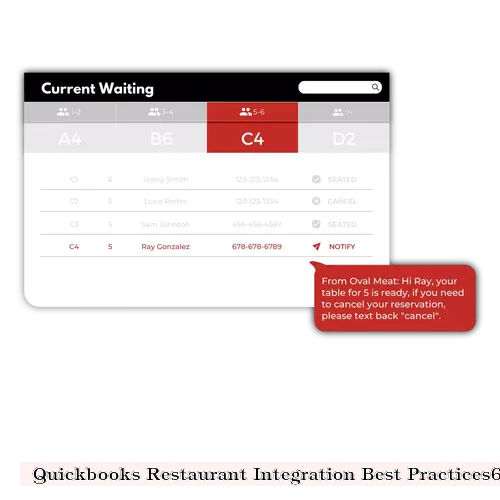

Integrating QuickBooks with your restaurant management system can streamline operations, improve accuracy, and save you valuable time. Here are some best practices to ensure a seamless integration:
1. Choose the Right Integration:
Select an integration solution that aligns with your restaurant's specific needs and workflow. Consider factors such as the number of POS terminals, menu complexity, and reporting requirements.
2. Map Data Accurately:
Ensure that all relevant data, such as menu items, sales, and customer information, is mapped correctly between QuickBooks and your restaurant system. This will prevent errors and ensure accurate reporting.
3. Automate Transactions:
Set up automated rules to automatically create invoices, record payments, and update inventory based on POS transactions. This eliminates manual data entry and reduces the risk of errors.
4. Track Inventory Effectively:
Integrate QuickBooks with your inventory management system to track stock levels, manage orders, and prevent overstocking or shortages. This ensures optimal inventory control and cost savings.
5. Generate Comprehensive Reports:
Utilize QuickBooks' reporting capabilities to generate detailed reports on sales, expenses, profitability, and other key metrics. This data can help you make informed decisions and improve your restaurant's performance.
6. Monitor Integration Regularly:
Regularly check the integration to ensure it is functioning properly and that data is being transferred accurately. This proactive approach helps identify and resolve any issues promptly.
7. Train Staff Thoroughly:
Provide comprehensive training to your staff on how to use the integrated system. This ensures they understand the processes and can effectively manage the integration.
8. Leverage Cloud-Based Solutions:
Consider using cloud-based integration solutions that offer real-time data synchronization and remote access. This provides flexibility and allows you to manage your restaurant from anywhere.
9. Seek Professional Assistance:
If you encounter any challenges or require advanced customization, consider seeking assistance from a QuickBooks-certified consultant. They can help you optimize the integration and maximize its benefits.
By following these best practices, you can ensure a successful QuickBooks restaurant integration that will enhance your operations, improve accuracy, and drive profitability.
DISCLAIMER: This information is provided for general informational purposes only, and publication does not constitute an endorsement. Kwick365 does not warrant the accuracy or completeness of any information, text, graphics, links, or other items contained within this content. Kwick365 does not guarantee you will achieve any specific results if you follow any advice herein. It may be advisable for you to consult with a professional such as a lawyer, accountant, or business advisor for advice specific to your situation.
today
Copyright © 2026 Kwick365.com
Designed by KwickPOS is the best restaurant POS